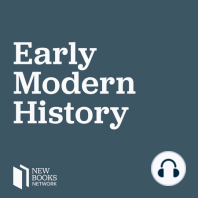71 min listen

Ferenc Hörcher, "The Political Philosophy of the European City: From Polis, Through City-State, to Megalopolis?" (Lexington Book, 2021)
Ferenc Hörcher, "The Political Philosophy of the European City: From Polis, Through City-State, to Megalopolis?" (Lexington Book, 2021)
ratings:
Length:
81 minutes
Released:
May 16, 2022
Format:
Podcast episode
Description
To many the city might seem simply a large urban area to live within, but it actually forms an important political concept and community that has been influential throughout European history. From the polis of Ancient Greece, to the Roman Republic, to the city-states of the Italian Renaissance, and down to the present day. Modern concepts of democracy and citizenship that have shaped European thought have historically originated from the political community of the “city”.
Addressing this multifaceted topic is Ferenc Hörcher's The Political Philosophy of the European City: From Polis, Through City-State, to Megalopolis? (Lexington Books, 2021)
Ferenc Hörcher is a political philosopher, historian of political thought and a philosopher of art. He is director of the Research Institute of Politics and Government at the University of Public Service in Budapest and senior researcher at the Institute of Philosophy of the Hungarian Academy of Science.
Stephen Satkiewicz is independent scholar whose research areas are related to Civilizational Analysis, Big History, Historical Sociology, War studies, as well as Russian and East European history.
Learn more about your ad choices. Visit megaphone.fm/adchoices
Addressing this multifaceted topic is Ferenc Hörcher's The Political Philosophy of the European City: From Polis, Through City-State, to Megalopolis? (Lexington Books, 2021)
Ferenc Hörcher is a political philosopher, historian of political thought and a philosopher of art. He is director of the Research Institute of Politics and Government at the University of Public Service in Budapest and senior researcher at the Institute of Philosophy of the Hungarian Academy of Science.
Stephen Satkiewicz is independent scholar whose research areas are related to Civilizational Analysis, Big History, Historical Sociology, War studies, as well as Russian and East European history.
Learn more about your ad choices. Visit megaphone.fm/adchoices
Released:
May 16, 2022
Format:
Podcast episode
Titles in the series (100)
Robert Westman, “The Copernican Question: Prognostication, Skepticism, and Celestial Order” (University of California Press, 2011): This is an extraordinary book written by one of the finest historians of science. Ringing in at nearly seven hundred oversized, double columned pages Robert Westman‘s The Copernican Question: Prognostication, Skepticism, by New Books in Early Modern History